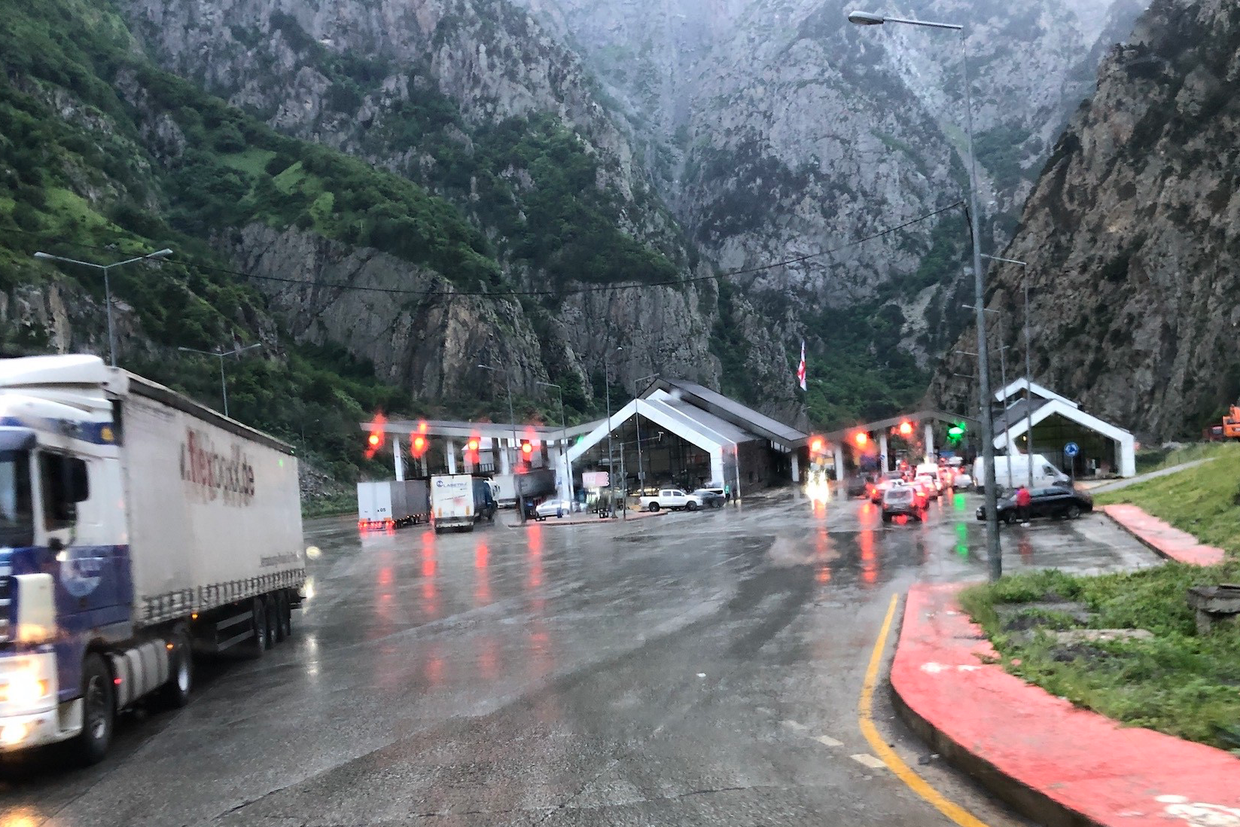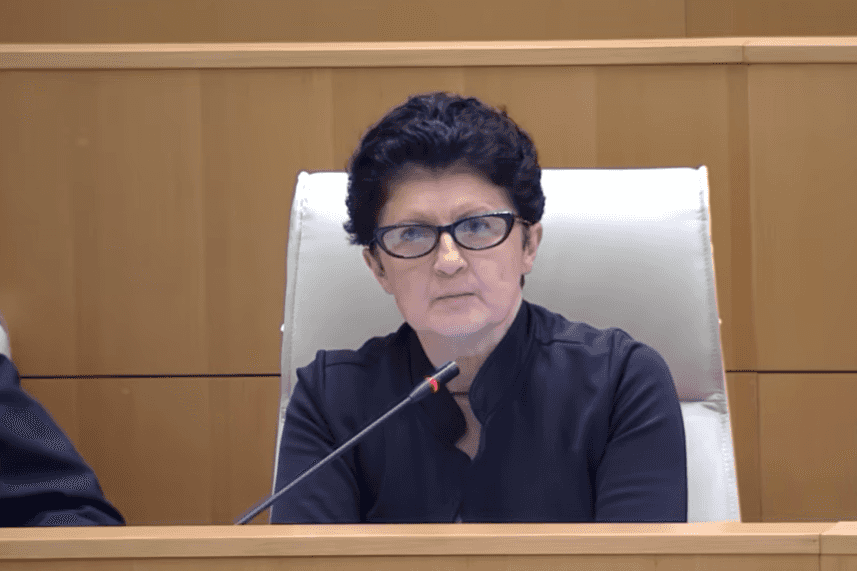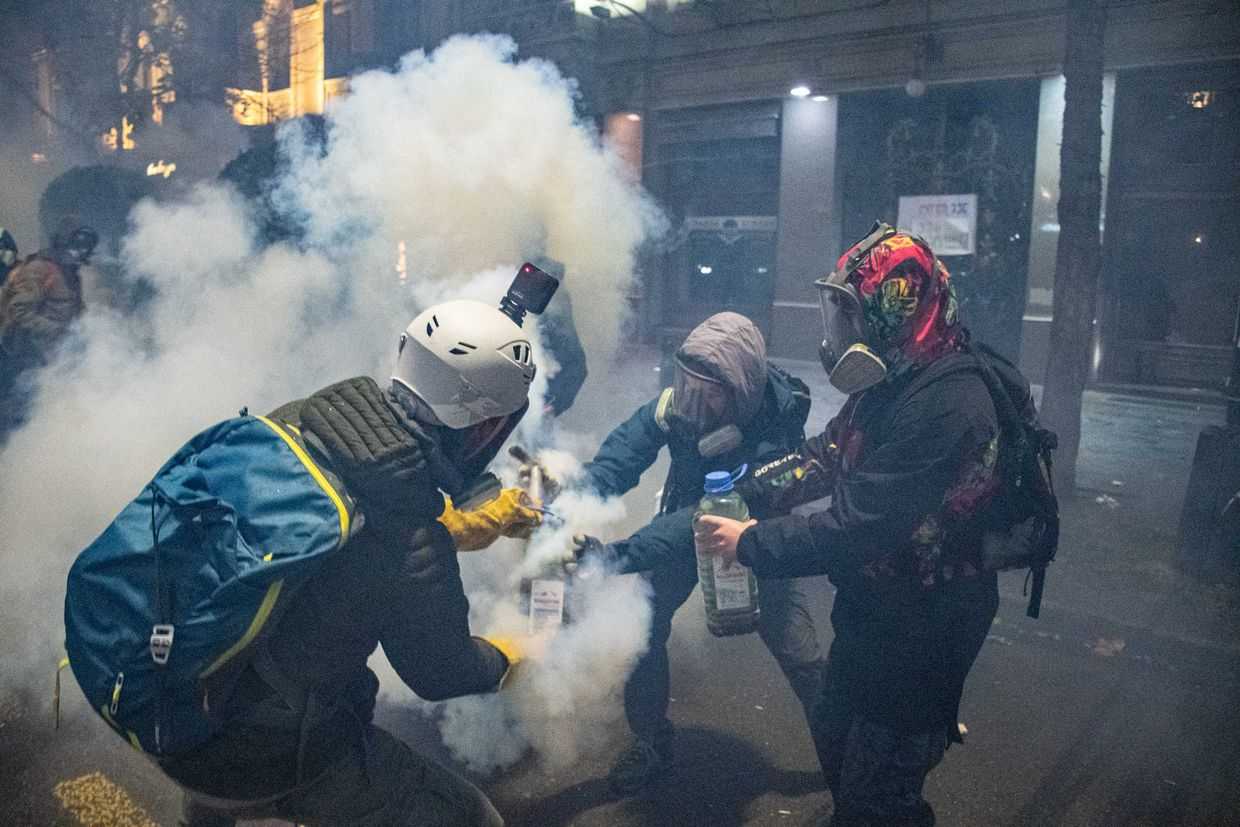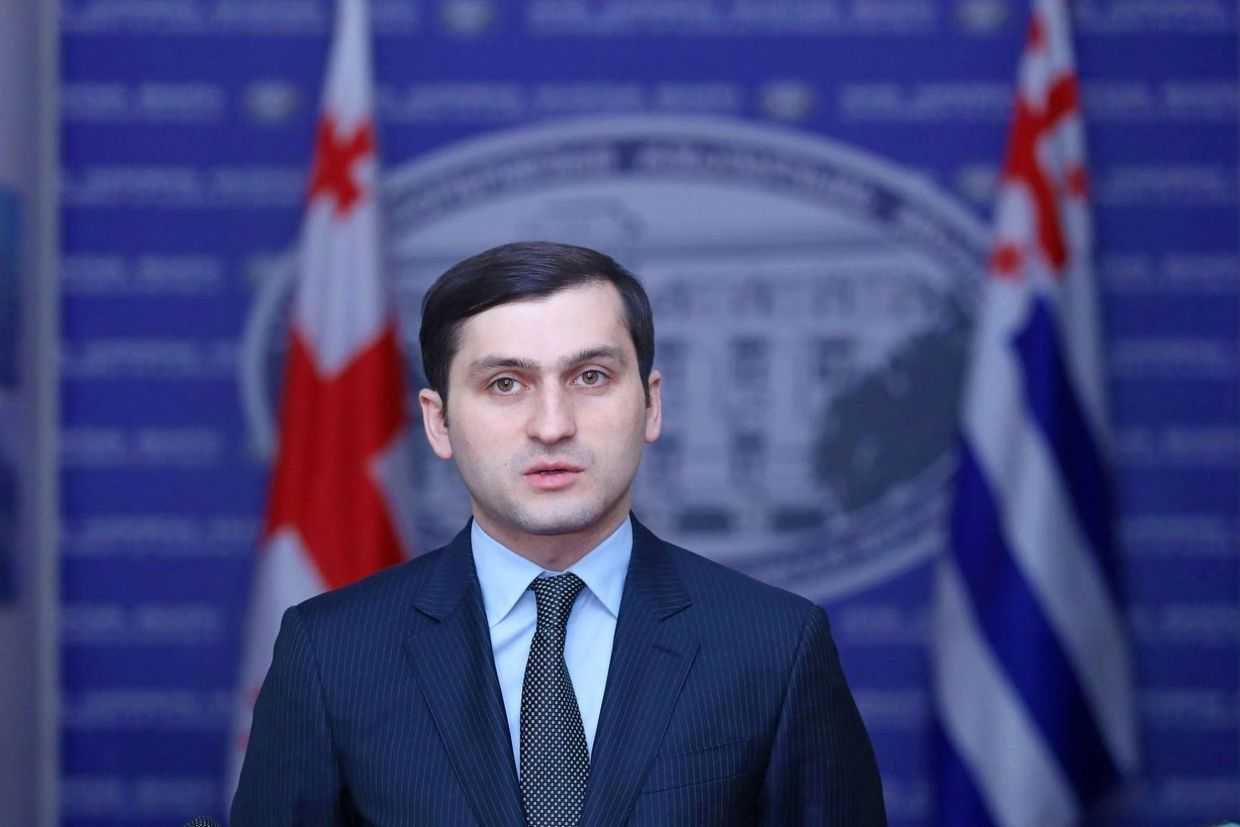
The Georgian Interior Ministry has called on Ukraine to return its citizens detained at the Georgia–Russia border to their homeland, accusing Kyiv of ‘artificially delaying the process’ with the specific purpose of ultimately forcing them to be allowed into Georgia.
Deputy Interior Minister Aleksandre Darakhvelidze’s statement on Saturday concerned dozens of Ukrainians who were deported from Russian-occupied Ukrainian territories and remain stuck at the Georgian border, being held by authorities in a basement-like room.
Darakhvelidze said that at this stage, 87 individuals remain in the so-called neutral zone. He reiterated the declared reason why the Georgian authorities are not allowing them to enter the country: that ‘all of them have serious criminal records’ and have been convicted multiple times, while also lacking valid documents to cross the border.
According to Darakhvelidze, the Georgian side has held numerous meetings with the Ukrainian embassy and international organisations regarding the issue and has proposed several mechanisms to Kyiv on how to ‘safely evacuate’ and return the Ukrainians stranded at the border.
‘Among the options we proposed were both air and sea routes for returning the individuals to their homeland’, he said.
Darakhvelidze stated that despite these proposals, Kyiv has so far ‘refrained’ from using the sea route, and regarding the air route, which involves a charter flight, Tbilisi has yet to receive a response. He described this as ‘an artificial delay of the process’.
According to him, the delay raises suspicions that ‘the Ukrainian side wishes for these people to remain in the so-called neutral zone for an extended period, so that later the Georgian side would be forced to allow them to cross Georgia’s state border’.
‘We categorically declare that we will not put the safety and public order of our country’s population at risk!’ he added, hinting at the alleged criminal backgrounds of the Ukrainians at the border.
Darakhvelidze cited data showing that in June–July, with the involvement of the Ukrainian side, 37 individuals arriving from Russia left Georgia toward Moldova, while around 10 others departed in different directions. He mentioned this figure to support Tbilisi’s claim that, in case of having the ‘appropriate will’, Kyiv is capable of resolving the issue and facilitating the departure of the remaining Ukrainians from the border.
‘We appeal to the relevant Ukrainian authorities to take immediate measures to ensure the return of their citizens to Ukraine’, he concluded, noting that Tbilisi is ready to facilitate the process, including covering the travel costs.
‘Possible targeted operation’ by Russia
Three days before Darakhvelidze’s statement, on 6 August, the press service of Ukraine’s Foreign Ministry issued a statement regarding those stranded at the border, noting that it was working with relevant parties to resolve the crisis.
The ministry confirmed that the majority of the Ukrainians have prior criminal convictions and were either serving sentences in the Russian-occupied Ukrainian territories before being forcibly transferred to Russia, or had already been serving sentences in Russia for crimes committed there.
Explaining the recent escalation of the problem, the ministry pointed to Russia’s intensified deportation of Ukrainians toward Georgia starting in the second half of June, calling it a ‘possible targeted operation’ by Moscow. The statement also mentioned ‘Moldova’s suspension, at a certain point, of transit for such individuals’ as another reason for the growing problem.
The statement emphasised Ukrainian Foreign Minister Andrii Sabiha’s past call to Moscow ‘to send the deported Ukrainians straight to the Ukrainian border’.
Russia ‘ignores this appeal, which also indicates Moscow’s deliberate intent to create a humanitarian crisis at the Russia–Georgia border’, the statement said.
According to the ministry, the situation is further complicated by the fact that ‘the Georgian side has expressed readiness to organise the transportation of these citizens to Tbilisi Airport only after the Moldovan side, as the transit country, confirms its willingness to receive them’.
Information about Ukrainians at the Georgian border began circulating in regional media starting in June. They have been living in unsanitary conditions inside an unfinished customs terminal on the Georgian side of the border without basic utilities. Food, water, and medical assistance have been provided by volunteer organisations as opposed to the Georgian authorities.
According to the civil society organisation Protection of Prisoners of Ukraine, several of those detained at the border are seriously ill or have disabilities.
Weeks ago, some of the Ukrainians at the border self-harmed in protest against their conditions, including one individual who reportedly slit his own throat, but survived.
On 31 July, the European Court of Human Rights (ECHR) launched an urgent procedure to protect the rights of the Ukrainians. The interim measures were announced following the application of Rule 39, which allows action in cases where there is a threat of irreparable harm to a person’s health or life and where domestic legal remedies have been exhausted.
Last week, some of those stranded at the border began a hunger strike with several demands. These included the presence of the Ukrainian consul, a clear explanation of the reasons for their detention, the right to either leave Georgia or apply for international protection, a medical examination, and an end to what they describe as their unlawful detention.
According to the Ukrainian Foreign Ministry, representatives of the Ukrainian embassy headed to the border immediately upon receiving information about the hunger strike and met with the Ukrainians there.
In another comment released shortly after the Georgian Interior Ministry’s statement on Saturday, Kyiv said the hunger strike had ended.
Additionally, the statement said that on 7 August, three individuals present at the site received medical assistance.
‘An agreement was reached with the Georgian side to provide urgent medical care to our citizens if needed’, the statement read.
On Monday, the embassy said that, with the help of volunteers, humanitarian aid was delivered to the border, adding that it ‘continues to make every effort to protect the rights and interests of Ukrainian citizens and ensure their safe return to their homeland’.










